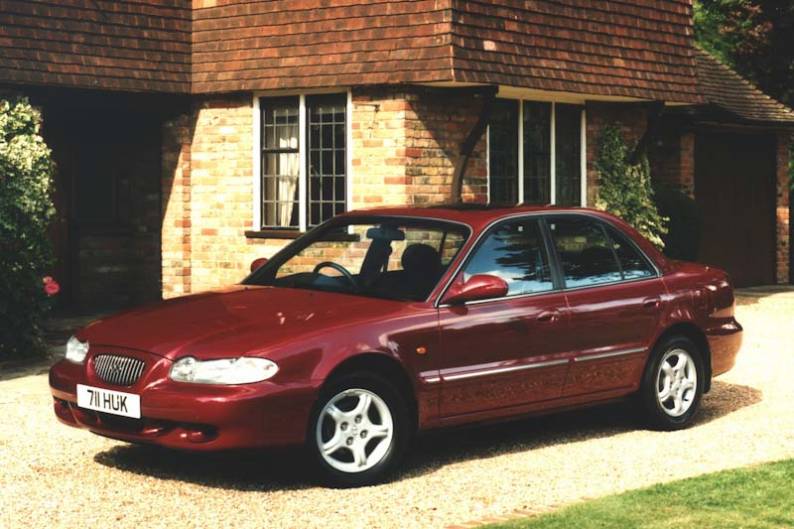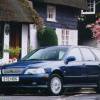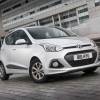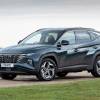
RAC sale – up to 33% off*
• Roadside cover from £5.29 a month†
• We get to most breakdowns in 60 mins or less
• Our patrols fix 4/5 breakdowns on the spot

BY JONATHAN CROUCH
Introduction
So you want a plush used executive car? Problem is, you don't have an executive budget. This is a situation tailor-made for your local Hyundai salesman. Doubtless, he or she will point you towards a used Sonata - and it could prove to be something of a bargain - as long as you buy carefully.
This is a large saloon that makes a lot of sense. If all you want is a plush, well equipped and smartly-styled conveyance offered on the market at the kind of money BMW 7 series buyers would call VAT, then look no further.
Models
Models Covered:
First Generation - 1989-1992: (1.8, 2.0, 2.4 4cy 4dr [GL, GLS, CDi])
Second Generation - 1994-1998: (2.0 4cy 4dr [GLX, GSi, CD] / 3.0 V6 4dr)
Third Generation - 1998- to date: (2.0 4cy [GSi, CDX] /3.0 V6 4dr [V6])
History
The Sonata was launched back in 1989 with a choice of three four-cylinder engines - a 1.8, a 2.0-litre and a 2.4. The first generation model was, in truth, unappealing and few were sold. Trim is cheap and build quality patchy.
The second generation model, launched in 1994, was altogether different. It had a smart European look and a quality feel. There was more equipment, better build quality and a 3.0-litre Mitsubishi-derived V6 for the first time, to complement the standard 2.0-litre 'four'. The car was mildly facelifted late in 1996.
An all-new Sonata was launched in 1998 with a swoopy new American-designed body. As before, there was a choice of 2.0-litre four-cylinder or V6 engines, but both were heavily reworked. The new 2.5-litre V6, in fact, was now Hyundai's own design, like the four-cylinder units.
What You Get
You could easily mistake this car for an up-market Mazda or Toyota and the lines, from second generation onwards anyway, are appealing. Inside the spacious cabin, it's all a fairly familiar Oriental recipe. Lots of plastic and plenty of equipment. Once seated behind the infinitely adjustable steering wheel, you become au fait with the instrument layout in seconds.
As far as dimensions are concerned, the Sonata loses out to some competitors in rear legroom, but takes the lead in front and rear passenger headroom. The rear seats split-fold down to offer increased carrying capacity for the large boot.
What You Pay
Please fill in the form here for an exact up-to-date information.
What to Look For
Be picky. Try for the plusher air conditioned CD models. Avoid tatty first generation cars and others that are less than pristine and have incomplete service records as parts and servicing can be a bit pricey. Check for electrical faults and minor bodywork and trim damage.
Replacement Parts
(approx based on a 1994 2.0 CD) A clutch assembly will be around £135. A starter motor will be about £150. Brake pads front and rear are about £55 and £40 per pair respectively. A replacement headlamp is close to £125.
On the Road
Don't expect the Sonata to be a ball of fire on the road because it isn't. Under the bonnet of the volume second generation models lies a sixteen-valve 2.0-litre 136hp engine with a specification that promises more than it ultimately delivers. Rest to 60, however, does take a respectable 10.2 seconds on the way to a maximum of 121mph.
The handling is competent but equally unexciting, not aided by a power steering system that press-on drivers will find rather over-assisted. Still, these people are unlikely to stray into Hyundai showrooms anyway. For most Sonata buyers, it will be enough that the car happily cruises quietly at both legal (and slightly illegal) speeds and will do so all day in the fast lane if required.
More important perhaps is the almost seamless shift action of the auto `box that's fitted to all V6 variants and some 2.0-litre models. In second generation guise, Hyundai developed a system called `Adaptive Shift Control` (ASC) said to provide smoother shifts when you're cruising and sharper gearchanges when the pace picks up. By and large, it's quite effective.
Overall
Worth considering if you want something plush and don't mind if it's unexciting to drive. Provided of course, that you buy carefully and avoid the earlier models.







